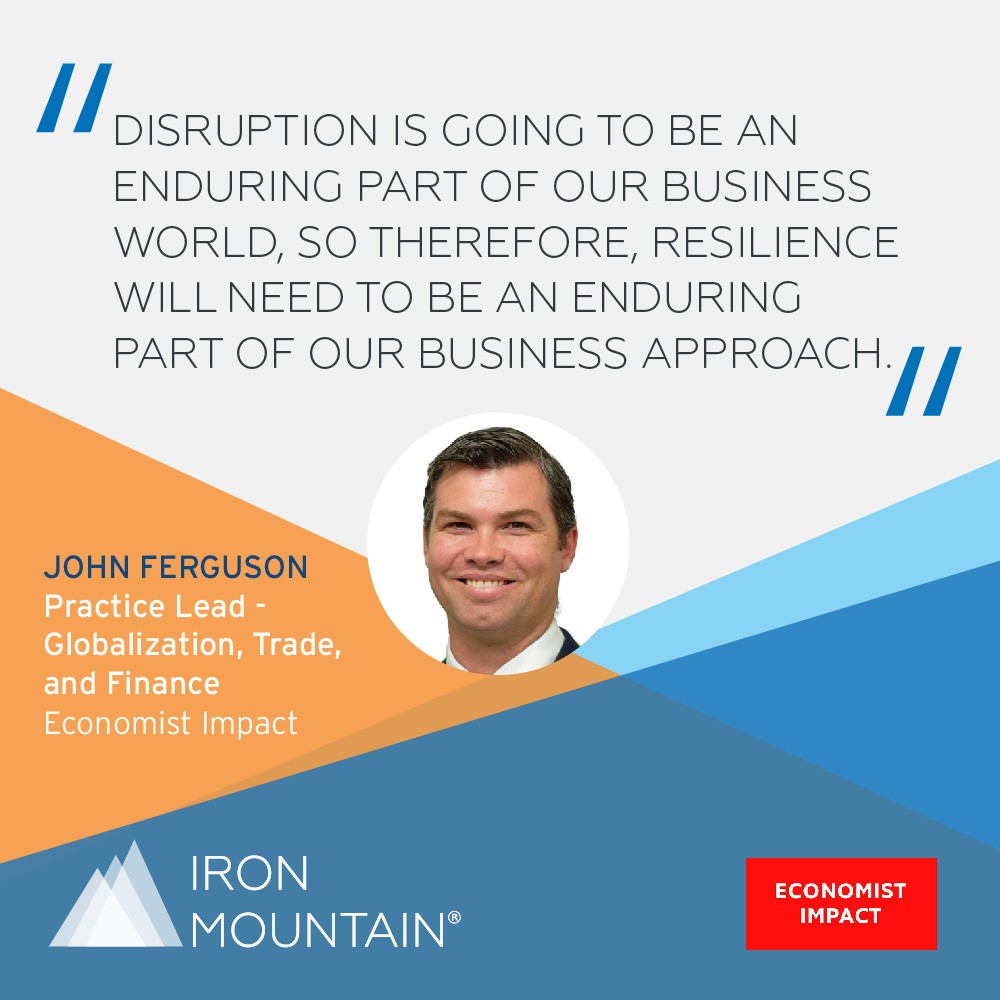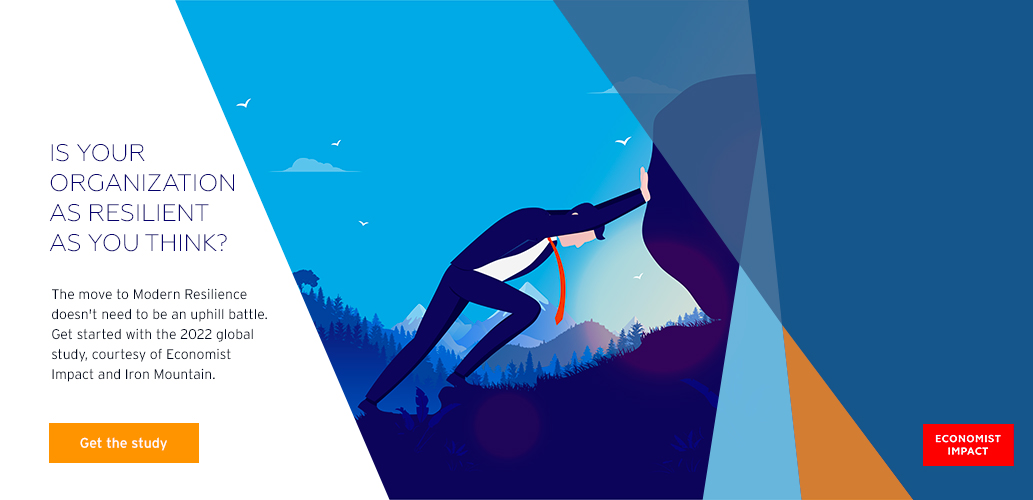Is your organisation as resilient as you think?
We've all demonstrated resilience in exceptional circumstances as individuals, as a society, and as organisations – public and private. Unfortunately, these disruptive circumstances seem to be hurled at us with more frequency and ferocity than most of us can remember.

The consequences of the pandemic such as hybrid work modes, the great resignation, business closures, and weakened supply chains have forced change to happen. At the same time, global conflicts and climate crises have led to economic uncertainty and threats to natural resources further complicating new ways of working.
Time has demonstrated that organisations are dealing with these situations as they arise, some more successfully than others. But the big question is: Is it time to more purposefully commit talent and money to infuse the many facets of resilience into our organisations' DNA? Research sponsored by Iron Mountain and conducted by Economist Impact answers with a resounding "yes."
The majority of over 600 executives surveyed on five continents agree that building a resilient organisation demands cross-functional collaboration. If done right, our findings confirm that strategic resilience leads to significant performance advantages in areas such as customer satisfaction, employee retention and recruitment, risk management, and progress towards ESG goals.
Yet while resilience may be perceived to be institutionalised by executives, it does not guarantee that at operational levels it trumps efficiency and commitments to achieving financial goals. In fact, the research indicates that 85% of organisations don't involve heads of departments in resilience initiatives. This lack of leadership involvement across departments means many organisations aren't as resilient as they think they are.

So, how do we fill the gap?
It is essential to bust through silos. While the importance of cross-functional collaboration is acknowledged by executives, making it happen is a distinct challenge. Per our research with Economist Impact, "It requires connections, sustained over time, between diverse functions like operations, IT, supply chain, sales, sustainability, records and information management, HR, and facilities." The establishment of a Resilience Committee can enable these sustained connections, and it is becoming more popular not only to meet on a normal cadence but also to be called together when a disruption occurs.
While a Steering Committee can provide a centralised approach to resilience, the majority of organisations favor decentralised decision-making to enable quicker responses. That said, while 72% of organisations are investing in improvements to enhance the speed of decision-making, only 44% are fostering resilience through greater decentralisation.
According to our findings, a sustainable business resilience plan rests on these seven areas, all of which demand a purposeful strategy to ensure your organisation stays resilient into the future:
-
Cross-functional collaboration and planning
-
Information sharing between departments
-
Employee well-being and engagement
-
Decision-making architectures and measurement
-
Balancing resilience and efficiency
-
Adapting to new technology
-
Meeting sustainability targets
When disruption strikes, cross-functional teams can more easily diagnose issues, react, and recover compared with siloed teams. While leaders can be catalysts, they alone cannot drive resilience. The approach must cascade across all levels within the organisation.
Is your business as resilient as you think it is? For a deeper dive into this research and how you can plan for a more resilient future, explore these resources.
7 elements of a sustainable business resilience plan
- Cross-functional collaboration and planning–Operational efficiency
- Information sharing between departments–Data governance & security
- Employee well-being and engagement–Workplace transformation
- Decision-making architectures and measurement–Operational efficiency
- Balancing resilience and efficiency–Operational efficiency
- Adapting to new technology–Data governance & security
- Meeting sustainability targets–Sustainability
Related resources
View More Resources


